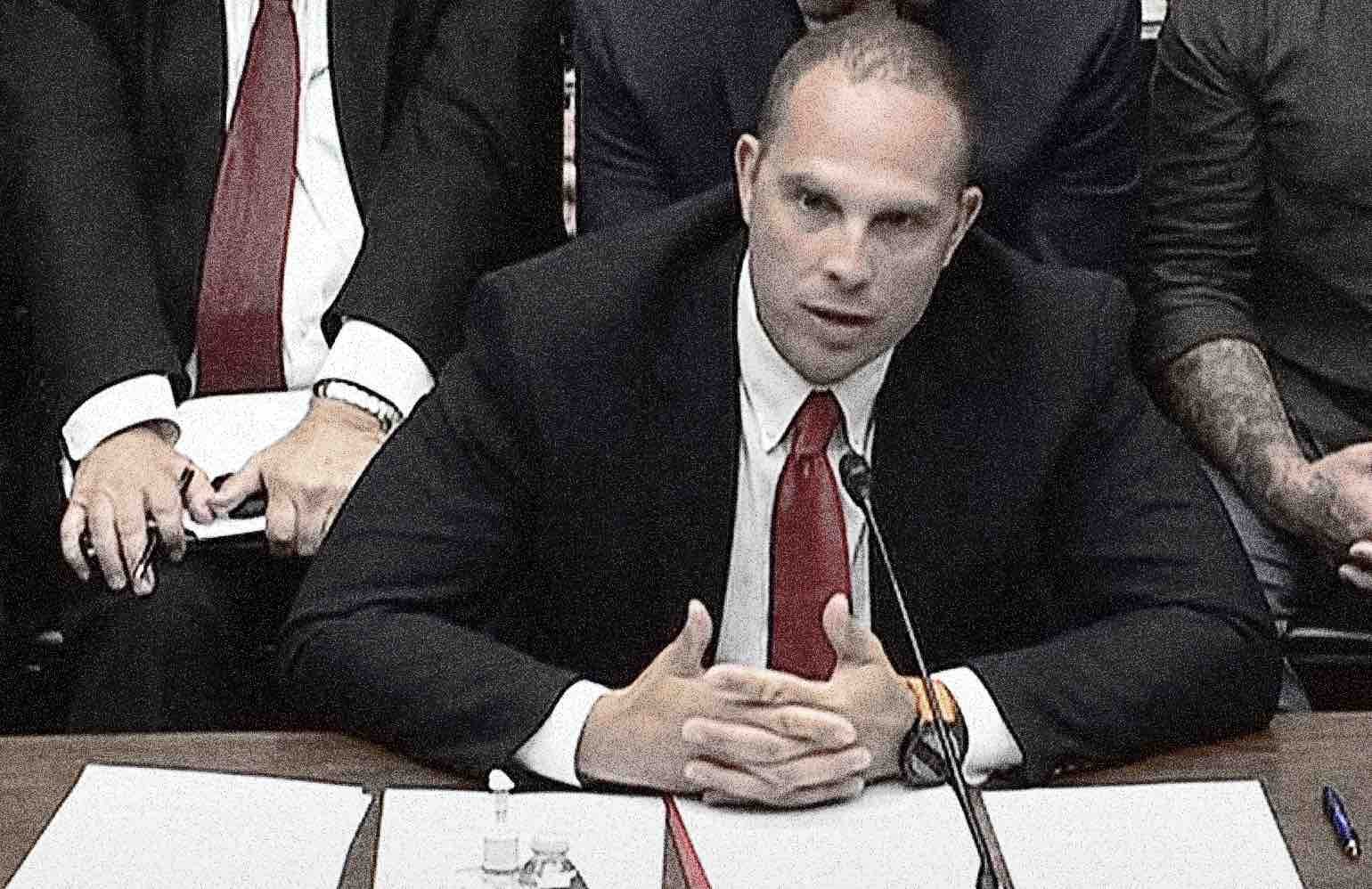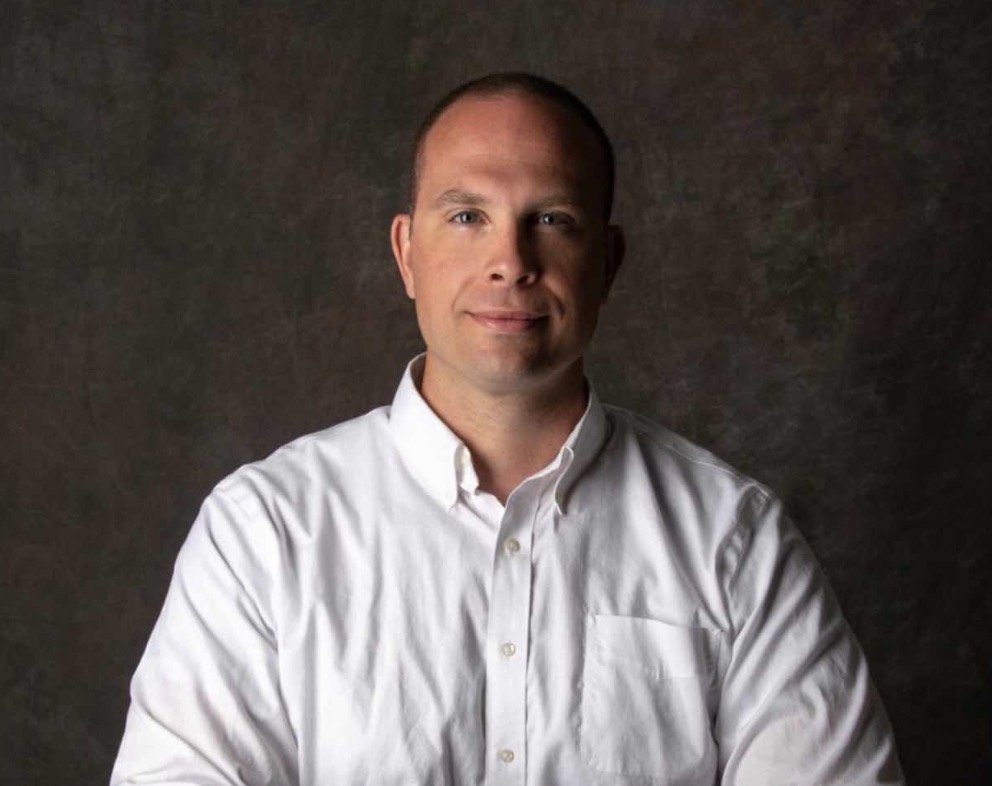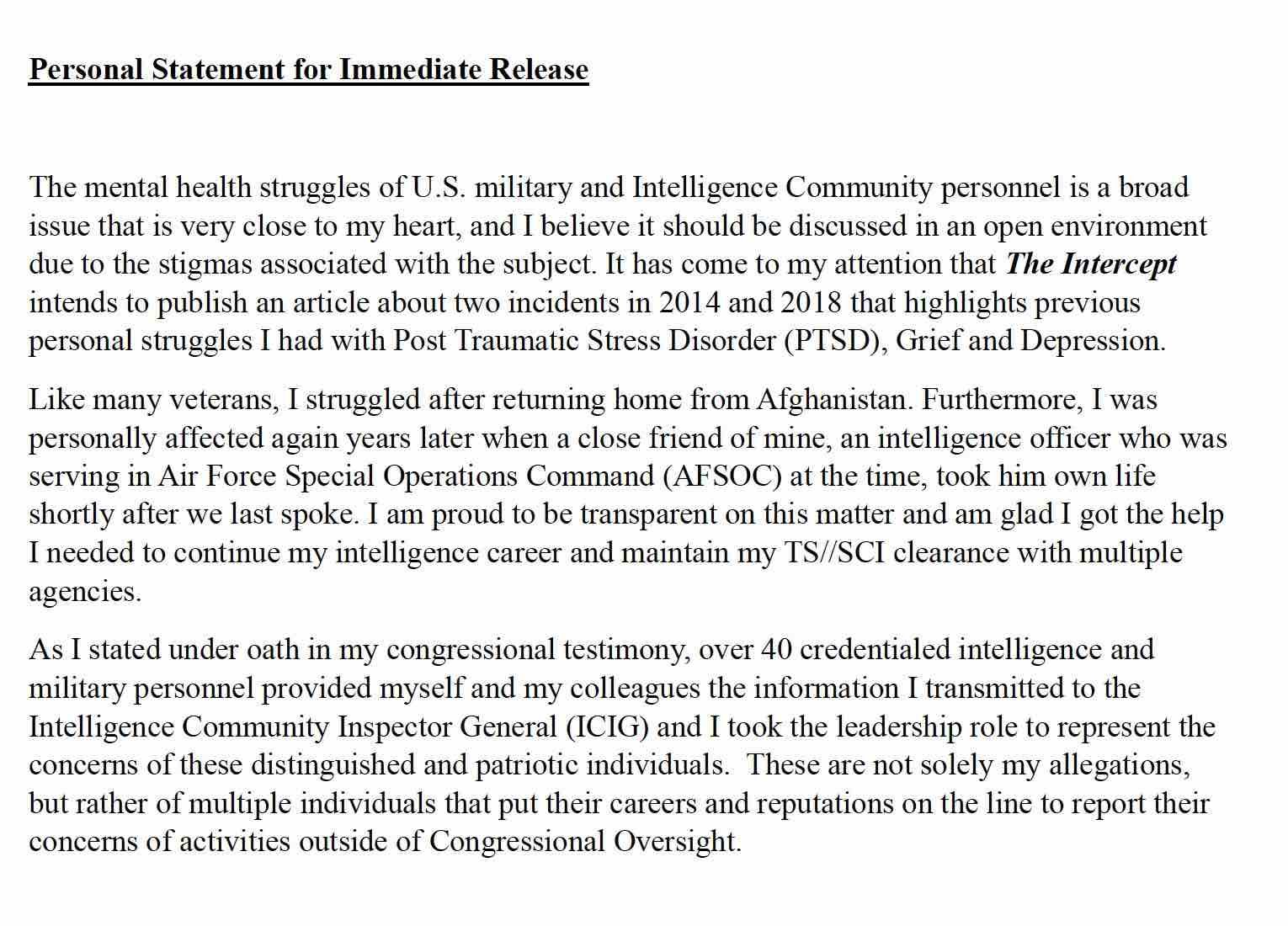

Welcome to this week’s installment of The Intelligence Brief… a recent article published by The Intercept featured several details obtained through a Freedom of Information Act request about UAP whistleblower David Grusch. In our analysis this week, we’ll be looking at 1) what the article presents about Grusch’s past struggles since leaving active duty, 2) the allegations involving a purported intelligence community leak of Grusch’s personal information, 3) where the tip-off that led to the FOIA request actually appears to have come from, and 4) the unfortunate stigmas this situation reveals about both UAP information from government sources, as well as mental wellness issues.
Quote of the Week
“Like many veterans, I struggled after returning home from Afghanistan… I am proud to be transparent on this matter and am glad I got the help I needed to continue my intelligence career and maintain my TS//SCI clearance with multiple agencies.”
– David Grusch
Latest News: This week in reporting from The Debrief, Tim McMillan explored the fascinating speculative science of extraterrestrial intelligence and what it might be like, while Chris Plain takes a look at how MIT scientists successfully demonstrated control over quantum randomness. You can find links to all our latest stories at the end of this newsletter.
Podcasts: In podcasts from The Debrief, this week on The Debrief Weekly Report MJ Banias and Stephanie Gerk discuss mysterious giant viruses discovered in Massachusetts, NASA’s plan to rocket Martian soil samples back to Earth, and more. Meanwhile, on The Micah Hanks Program, we delve into UFO folklore in search of whether credible reports exist of humanoid operators, and other alleged examples of non-human intelligence. You can subscribe to all of The Debrief’s podcasts, including audio editions of Rebelliously Curious, by heading over to our Podcasts Page.
Video News: On the latest episode of Rebelliously Curious, Chrissy Newton sits down with Marcus Capone, a veteran Navy SEAL who returned home after 13 years of active combat duty to face his own battle with mental health and eventually turned to (PAT) Psychedelic-Assisted Therapy. Meanwhile on most recent episode of Ask Dr. Chance, Dr Glenn answers his listener’s questions about artificial intelligence. You can get other great content from The Debrief on our official YouTube Channel.
With all that out of the way, it’s not time for us to take a deep dive into recent developments regarding UAP whistleblower David Grusch, how speculation managed to get ahead of the facts of this story, and the unfortunate realities it all highlights about the challenges that many U.S. government personnel face in their line of work.
A Whistleblower’s Personal Struggles
The past personal struggles of a former U.S. intelligence officer who recently came forward with controversial claims about the U.S. government’s involvement with unidentified anomalous phenomena, or UAP, were the focus of a piece published earlier this week in The Intercept.
The article, written by reporter Ken Klippenstein, discusses past issues with substance abuse and psychiatric detention resulting from post-traumatic stress disorder (PTSD) that David Grusch, the former official whose explosive claims about an alleged government UAP program were first reported by The Debrief on June 5, 2023, reportedly suffered after leaving active duty.


Based on responses to a request filed for police records under the Virginia Freedom of Information Act, Klippenstein reports that Grusch had been committed to a mental health facility on October 1, 2018, related in part to “a suicidal statement” Grusch reportedly made to his spouse at the time, after she encouraged him to seek help for his alleged dependence on alcohol.
Klippenstein’s article erupted in controversy even prior to its publication, given that sources he reached out to for comment—including Grusch—were alerted about its pending publication. The result had been confusion over the nature of the information Klippenstein obtained, what his motivations for seeking out and publishing it had been, and even speculations that it had been leaked by an unknown source within the intelligence community.
So what actually happened this week? More importantly, what were the sources of information Klippenstein says he relied on that formed the basis of his reporting, and what does all this mean with regard to Grusch’s claims made under oath before Congress last month, and in an intelligence community inspector general complaint he filed earlier this year?
Background: A Tale of Tweets and Tip-Offs
During a live audio conversation held via Spaces Wednesday night, Klippenstein provided background information about his investigation to researcher John Greenewald, stating that he initially solicited tips about David Grusch last month in a posting on X (formerly known as Twitter). The posting was made during a recent Congressional hearing on UAP, where Grusch provided testimony under oath regarding officials he had spoken with who claimed to have knowledge of a secret UAP program.
“During the hearing, I had a Tweet that said, um, if you have good or bad stuff about him, like… I don’t wanna bias it,” Klippenstein told Greenewald. “That’s why I put out requests for tips, cause if you only rely on people that you know, there’s probably a selection bias,” he said.
“So I just put out a call for tips, and actually got a lot of people that reached out with kinda tidbits, little pieces of information.”
“It was mostly negative, to be honest with you,” Klippenstein added. “To be totally straight, if there was positive stuff, I would have put that in there too.”
In his article at The Intercept, Klippenstein says he reached out to Grusch, as well as his current wife for comment by phone, and through an email to Grusch’s lawyer Charles McCullough, but received no responses. Following these contact attempts, Australian journalist Ross Coulthart subsequently posted a statement attributed to Grusch on X, a short excerpt of which Klippenstein quoted in his Intercept article.
Below is Grusch’s entire statement, which Coulthart shared on Tuesday:


Allegations of an Intelligence Leak
During a Tuesday evening appearance with NewsNation host Chris Cuomo, Coulthart said he believed the information had been leaked to The Intercept by someone within the intelligence community.
“Dave checked today because he assumed that the journalist had done his homework and just asked the local sheriff for the files,” Coulthart told Cuomo. “The sheriff has confirmed it did not come from him. The only other place that had this information is the intelligence community.”
“The intelligence community leaked it,” Coulthart reiterated to Cuomo on Tuesday. Following the NewsNation segment, similar allegations that the information had been leaked were leveled by Rep. Tim Burchett (R-TN) and others in social media posts appearing online.
However, according to Klippenstein, the allegations involving a leak, all of which were made prior to the publication of his article, were inaccurate.
“The records were not confidential, medical, nor leaked,” Klippenstein wrote in his Intercept article, acknowledging the allegations appearing online. “They are publicly available law enforcement records obtained under a routine Virginia FOIA request to the Loudoun County Sheriff’s Office and provided by the office’s FOIA coordinator.” Copies of portions of his correspondence with the Loudoun County Sheriff’s Office were also included with his article at The Intercept.
After Klippenstein’s article appeared online, NewsNation published an update that clarified one of its programs had previously featured commentary that “erroneously suggested” medical records had been “leaked by government” to The Intercept.
The additional clarification provided in Klippenstein’s article—particularly the inclusion of copies of his correspondence with the Loudoun County Sheriff’s Office—seemingly deflated the accusations that there had been any information “leaked” by the intelligence community. However, while it has now been resolved that Klippenstein’s primary source of information was obtained through what he characterizes as “a routine Virginia FOIA request,” that doesn’t mean that he hadn’t been tipped off by members of the intelligence community.
In fact, that’s precisely what he says happened.
So There Actually Were Intelligence Community Sources
During the X Spaces live conversation on Wednesday, Klippenstein told Greenewald that many online have characterized his article as a “hit piece” since its publication, adding that he does not personally believe Grusch’s claims.
“Being completely straight with you, I don’t believe the UFO stuff,” Klippenstein said on Wednesday, adding, “I don’t have any insight into whether [Grusch] believes it or not.”
“Like, I assume he believes what he’s saying,” Klippenstein said. “I’m not someone who thinks everyone is grifting.”


Asked by Greenewald if the initial request for tips on social media had been the main impetus behind his Virginia FOIA request, Klippenstein said “No,” and proceeded to explain that there had indeed been other information he received.
“I knew people in the area, and so it was like I was getting bits and pieces from different people about stuff that they were saying.” So who, specifically, were these people “in the area” that Klippenstein had been referencing? Continuing his response to Greenewald, Klippenstein then made the following rather interesting statement.
“They gave me—you know how… the intel people, they’re vague.”
“Multiple people told me to, um, just look at any, um, any run-ins with law enforcement that [Grusch] had in the past,” Klippenstein further explained.
While Klippenstein’s admission does not provide direct vindication for the reporters and others who led with the presumption that “medical records” had been “leaked” to The Intercept, the fact that Klippenstein seemingly confirms he had been tipped off by individuals within the intelligence community does raise another question: what had been their motivations for doing so?
Possible Motivations, and Conclusions
Although we can only speculate based on the information currently at hand, there are a few possibilities that are worthy of consideration. Fundamentally, it seems that someone with knowledge of the incidents described in the Intercept article either saw Klippenstein’s request for tips about Grusch on social media and shared this “vague” information with him, or they were put into contact with the reporter by some other means (i.e., a referral, or some other kind of contact).
Many on social media have espoused the view that the motivation behind this might have been an attempt to discredit Grusch, as part of an ongoing series of retaliations against him since coming forward as a whistleblower. For some, this interpretation would also seemingly lend credence to the idea that at least a portion of the information Grusch claims to have acquired about a secret UAP program was accurate.
However, there is an alternative, and slightly more mundane possibility too: that the intelligence officials who provided the information may simply doubt Grusch’s claims. This possibility seems the most consistent with Klippenstein’s own stated views about what he characterizes as “the UFO stuff,” as well as quotes provided to him that were included in his article at The Intercept. Fundamentally, this perspective views Grusch’s recent claims and the resulting Congressional hearing as being an embarrassment to the intelligence community, and to the U.S. government at large.
In a follow-up post on X that appeared yesterday, Klippenstein further noted that Grusch “confidently asserts an intelligence conspiracy behind records I obtained via a routine FOIA request” adding that it “calls into question his similar claims about a conspiracy to cover up UFOs.”
Whatever the true motivations for the tip-off and subsequent reporting might have been, one would have a hard time arguing that the information published by The Intercept yesterday could have led to any other outcome than the potential discrediting of David Grusch.
UAP and Mental Wellness Stigmas
It remains to be seen whether Grusch’s core claims—that he interviewed more than 40 individuals with knowledge of a secret program involving UAP—end up being proven. For now, assessing those claims remains in the hands of the Intelligence Community Inspector General, as well as members of Congress.
However, another issue that arises from the recent report by The Intercept has more to do with the prevailing stigmas—both against government officials who claim to have knowledge of UAP, as well as those who have had to cope with mental wellness issues as a result of their time in service.
It is unfortunate indeed that the information pertaining to Grusch’s past struggles is already seemingly being viewed by some as a vehicle for calling his recent claims into question; particularly given Grusch’s own positions on mental wellness that military servicemembers face throughout government and his own personal triumph over those issues in recent years.
Citing his struggles after returning from active duty in Afghanistan, Grusch wrote in the statement issued earlier this week that he is “proud to be transparent on this matter and am glad I got the help I needed to continue my intelligence career and maintain my TS//SCI clearance with multiple agencies.”


The bottom line is that while the recent “revelations” published by The Intercept may be seen as a negative mark against David Grusch’s credibility by some, what they really help bring to light is a much more important issue that members of the U.S. military and other government personnel are experiencing today… and the unfortunate stigmas that further complicate those life challenges they face.
While Grusch’s controversial UAP claims await resolution in the hands of the proper authorities to whom the information has been provided, at the very least, Grusch should be commended for his resilience in overcoming the wellness issues in his personal life, as well as for being a voice in support of other government personnel who continue to face such challenges after their time in service.
If you are among those who feel you need help or are having thoughts of self-harm, please contact the National Suicide Prevention Lifeline on its website, or by phone by dialing 988.
That concludes this week’s installment of The Intelligence Brief. You can read past editions of The Intelligence Brief at our website, or if you found this installment online, don’t forget to subscribe and get future email editions from us here. Also, if you have a tip or other information you’d like to send along directly to me, you can email me at micah [@] thedebrief [dot] org, or Tweet at me @MicahHanks.


Here are the top stories we’re covering right now…
- Breakdown of Standard Gravity Reported in New Study Defies Newton’s Law of Gravitation and General Relativity
The breakdown of standard gravity has been reported in a groundbreaking new study that challenges the theories proposed by Newton and Einstein.
- Lockheed Martin is Making the ‘Most Powerful Combat Laser Ever’ Even More Powerful
Lockheed Martin is increasing the power of its ‘most powerful combat laser ever’ to a staggering 500 kilowatts, smashing the previous record of 300 kW.
- Australian Space Agency Confirms Fireball Seen Over Melbourne Was Russian Rocket Reentry
A brilliant fireball seen streaking through the skies over Australia has been identified as the reentry of a Russian rocket, according to a statement from the Australian Space Agency.
- Scientists Replicating Milestone Nuclear Fusion Experiment Now Report Even Higher Energy Yield
Scientists report they have succeeded at producing an even greater energy yield than last year’s milestone DOE nuclear fusion experiment.
- Taylor Swift is My Giant Brain Virus This week on The Debrief Weekly Report…
On today’s episode, we discuss mysterious giant viruses discovered in Massachusetts, NASA’s plan to rocket Martian soil samples back to Earth, and new research into tiny robots that can be sent inside the body to perform laser surgery.
- Encountering Aliens: Exploring The Fascinating Speculative Science of Extraterrestrial Intelligence, Physiology and Technology
Whether one is inspired by recent UAP news, or advances in space exploration, many believe that extraterrestrial intelligence exists. How soon might we finally discover it?
- Impossible Science: MIT Scientists Successfully Demonstrate First-Ever Control over Quantum Randomness
In a breakthrough achievement, MIT researchers say they have successfully demonstrated control over quantum randomness for the first time.
- Mystery of HLD 6: Unearthed Ancient Remains Could Challenge Everything We Know About Human Evolution
Discover the enigma of HLD 6: Newly found remains in China that are reshaping our understanding of human evolution.
- Will Disclosure Occur Before Scientists Obtain Evidence of UAP? Recruiting Panelists from the Bar at Harvard Square as The Galileo Project Turns Two
Is it easier to learn what lies in interstellar space from scooping the bottom of the Pacific Ocean than from politicians in Washington DC?
- ‘Bizarre’ and ‘Exotic’ Properties of 2D Materials Magically Transferred to 3D Materials
Properties referred to as “exotic” and “bizarre” that previously only existed in 2D materials have been magically transferred to the 3D realm.
- With Future Mars Missions on the Horizon, Participants in NASA’s CHAPEA Simulation Face Real World Challenges
In NASA’s CHAPEA simulations, participants will meet challenges that foreshadow the real-world issues presented by future Mars missions.
- NASA is Gearing Up for the First Rocket Launch from Another Planet
This week, we examine recent tests being carried out by NASA are paving the way for the historic first rocket launch from Mars.
- Researchers Create “Unnatural” Amino Acids Unlike Anything Found in Nature
“Unnatural” amino acids unlike anything that occurs in nature have been created by a team of researchers in a new research breakthrough.
- A Comedy Writer and A Cartoon Voice Actor Respond to Recent AI Comedy Fail
A writer/producer for Family Guy and the voice of Looney Tunes’ Yosemite Sam react to the recent failure of AI to write and understand comedy.
- Strange Metamaterial with “Fourth Dimensional” Properties Leads to Breakthrough in Energy Manipulation
Scientists have engineered a new metamaterial possessing “fourth dimensional” properties, allowing the novel control of energy waves.
- Researchers Discover Extraordinary Alien-Looking Giant Viruses in New England Forest
Researchers make an astonishing discovery, finding remarkable, never-before-seen giant viruses in a New England forest.
